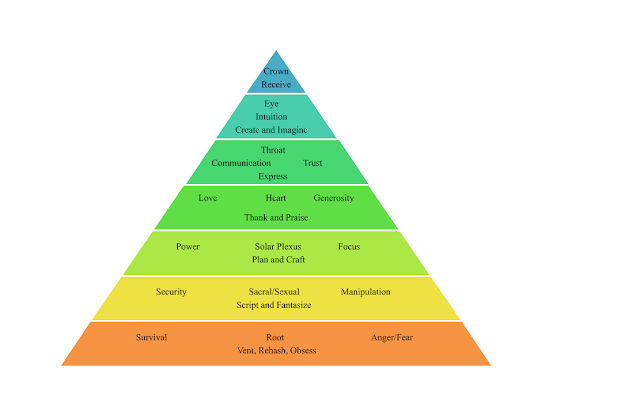
Don’t you love the meme?! People on
their devices reaching out—texting, chatting, posting, Googling. Whereas the Survival stage of journaling is a
monolog against perps and a plaint against fears, the Security stage is about engaging with others. After all, humans are social beings—it’s a
matter of security to be part of a tribe. The Security stage is a natural segue
from the Survival mode of journaling for authenticity—and is often interwoven
with it, especially when writing about fraught relationships.
Of course, devices can be used for
all levels of writing for authenticity—and you’ll see that the Power and Love
levels are satisfying exchanges. Anxiety
and Manipulation dominate when we write purely for Security.
Moving from my Survival rant,
where I railed against the driver who rear-ended me, I scripted a lecture to
deliver to him. I fantasized how I could
manipulate contrition from him, and reparations beyond car insurance. Writing this was helpful, because I realized
how crazy it would be. When I did speak
briefly to him at the accident site, he kept blaming me for braking for the car
in front of me. That’s nuts, of course.
This is not someone I would want to engage with. Writing my fantasies helped me to maintain my
security from further psychological stress and anxiety that contacting him
would have created.
When bypassing the Survival stage and diving straight into writing for Security, the tone might be less charged. In my high school journals, when I was just
awakening to the possibilities of romance, my journals were filled with reports
of how, for example, my crush, Tom Kulick, said hello to me in the
stairwell. And did he emphasize the
first syllable or the second. And was
there an I-like-you in his tone. How I wasn’t sure if he said it to
everyone in the same way; and did he look after me as I passed by; and had I
combed over my cowlick; and was my collar straight; and…and all the yada
yadas of teenager angst.
I then segued to Colleen, who I
thought was my best friend, who, I was sure, was flirting with Tom Kulick. Colleen claimed she was just trying to find a
way to tell him I liked him—to ease my way. That gave me an opportunity
to regress to Survival writing—a rant about how she just lying and was horning
in on my emotional territory. Then I
rose back to Security to find a way to tell her to stop. OMG! All the anxiety, negotiation,
manipulation that are the rehearsal for reproductive rituals for earthbound
creatures.
Writing for Security, of course, isn’t
limited to romantic topics. We can enter
the Security level by acknowledging our anxiety and ways to connect with (manipulate)
others at work, social events, and in commerce.
Instead of just a one-sided retreat into our own anger, we use our
journals to puzzle through how to secure our security. Writing for Security is driven by Anxiety and
the need to Manipulate. We stabilize
ourselves here, so that we may move up into Writing for Power.
Writing for Security is also an
opportunity to inventory our regrets. After
all, our failings are another source of anxiety. I’m sorry for… I wish I had…. At
this level, we review our past actions that have an emotional charge—that might
be weighing on us—and explore avenues for making amends and doing better. We can write letters of atonement to others
in our journals—to send or not. Admitting our faults and regrets to ourselves
in a safe space— and puzzling out how to heal our insecurities around them—creates
a sense of Security. It is the
foundation of Power, our next level up.
Read through your journal
entries. Where do you write for Security?
Where do you regress to Survival writing
during those entries? Where do you rise
further up the pyramid?
If you have not written for
Security directly, explore what causes you anxiety. Write about your regrets. Notice your moves toward
scripting and manipulations. Clarify and
be kind to yourself. You are,
ultimately, your own best source of Security.
Report back to us here—quote what
you feel comfortable sharing with us.
© Susanna Rich, 2020
Works Cited:
Cover Art: https://cwatch.comodo.com/
Because I Can Teach:
Journal for Authenticity Series:

No comments:
Post a Comment